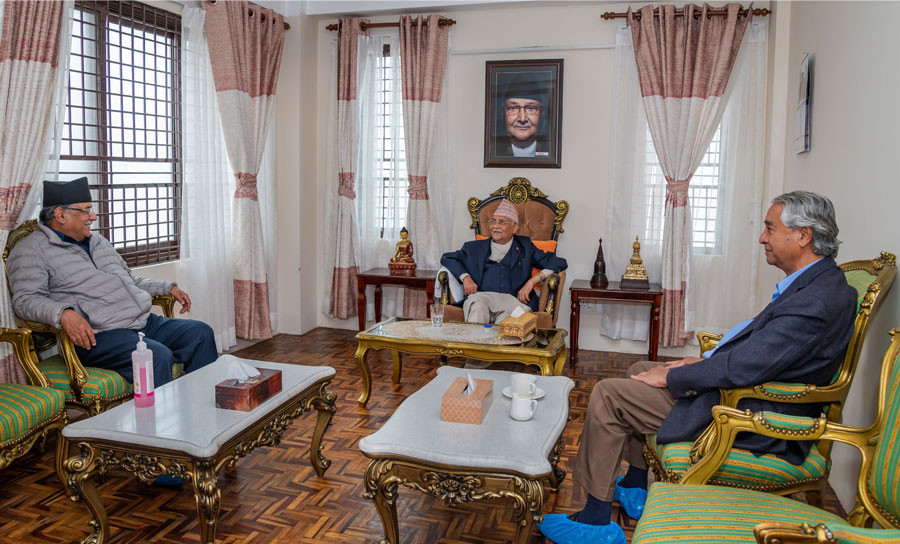Editorial
Do it anyway
Nepal’s three biggest parties have committed to fighting future elections on their own. They should.
General elections give the political parties the only real chance to test their popularity. What we have seen in the recent past is a clear preference of Nepal’s major forces for pre-poll alliances. With the country’s mixed electoral system unlikely to give any single party an absolute majority and thus a shot at forming the government on its own, what is the harm in jointly contesting elections with other parties? That, at least, is the argument of the proponents of such pre-election tie-ups. But in reality such pre-poll alliances smack of an utter lack of confidence and conviction. Nepali parties detest being in the opposition’s bench; there is no political culture of smaller parties accepting their limited mandate and waiting for the next five years for another shot at governing. So it makes sense for them to try to ensure, even before people head to the polls, to maximise their chances of being on the right side of the parliament’s aisle. What is more, such pre-poll alliances often come with the added bonus of safe seats for top leaders. But with parties professing vastly different ideologies standing on the same platform, the only message people get is that the country’s top parties are interested less in good governance and delivery than getting to power for its own sake.
But lo and behold! All three of the country’s major parties—the Nepali Congress, the CPN-UML and the CPN (Maoist Centre)—have now publicly committed to single-handedly contest the 2027 general elections. That, we are afraid, is an unlikely prospect. The Maoist Centre, the latest of the Big Three to make such a declaration, could be wiped out at the next polls without other parties’ help. Pushpa Kamal Dahal, someone who has been at the party’s helm for 35 years—and by extension his Maoist Centre party—has lost all credibility with his pendulum-like political swings. The party, which once championed the causes of the marginalised and the downtrodden, is these days an ardent backer of the kind of crony capitalism it used to accuse the Congress and the UML of fostering. In the past elections, the Maoist Centre has allied with both the parties, to limited success. The benefits of such pre-poll alliances for the two biggest parties is questionable, too. It thus makes sense for these parties, including the Maoist Centre, to test their individual strength in upcoming elections.
Despite the short-term risks, that would be the right thing to do, for the individual interests of these parties and for the larger good of Nepali democracy. People today are confused as they have no clear options at elections, and many of them choose not to vote. If instead the ballot papers reflect a clear choice between competing ideologies and agendas, it’s a whole new ballgame. The electorate can then make informed choices. For the political parties, the general elections offer a rare chance to test the strength of their programmes and leaders. Why lose this golden opportunity to do so and adapt accordingly for long-term success? Once individual parties know their real electoral strength, they can always join hands with other parties to form federal and provincial governments. Their public positions notwithstanding, do our political parties and their leaders have the self-belief to take the poll-plunge alone? People doubt it. But they will be happy to be proven wrong.




 18.12°C Kathmandu
18.12°C Kathmandu














